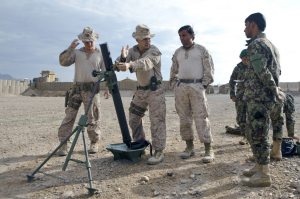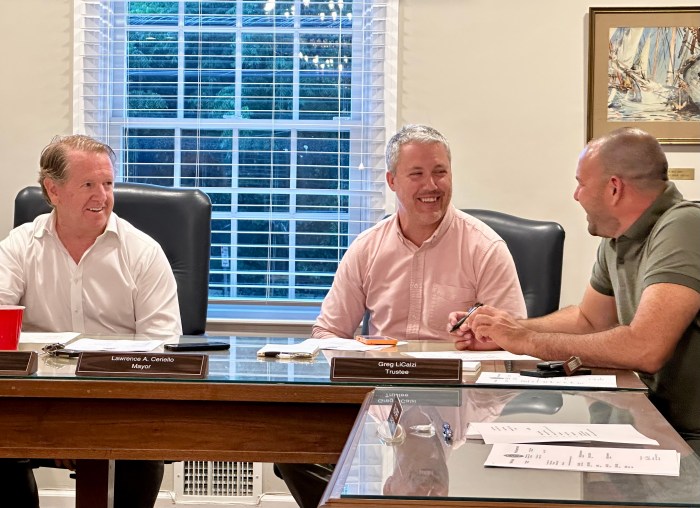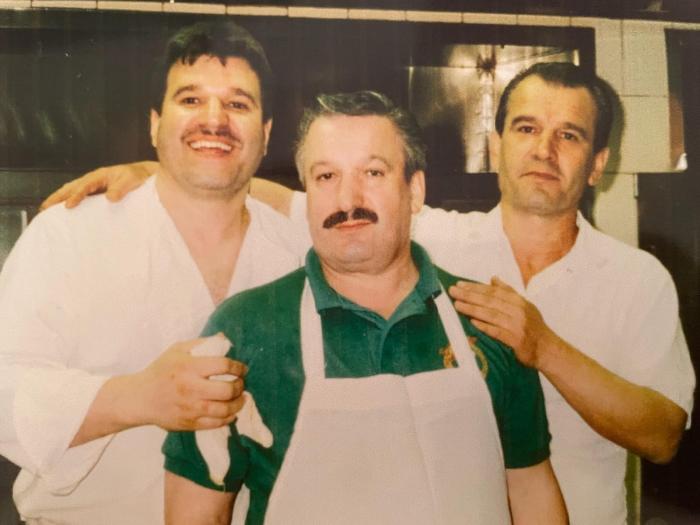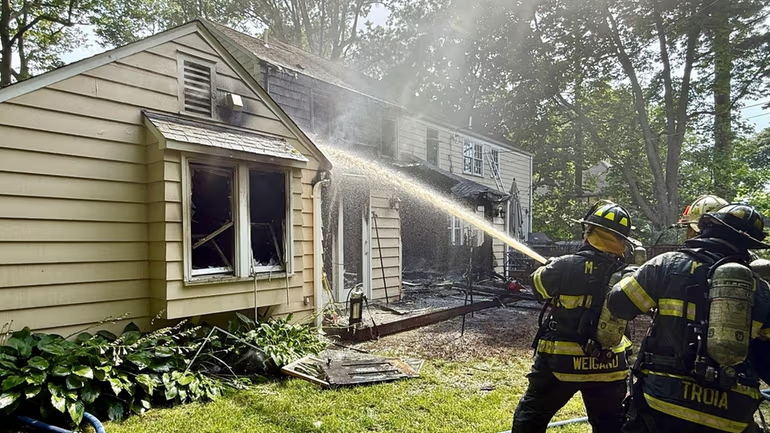 Afghan forces have taken responsibility for their own security and that mission is a daily balancing act for the Security Forces Assistance Advisor Team attached to the Afghan National Army’s 4th Brigade, 215th Corps, here.
Afghan forces have taken responsibility for their own security and that mission is a daily balancing act for the Security Forces Assistance Advisor Team attached to the Afghan National Army’s 4th Brigade, 215th Corps, here.
Now, as November comes to a close, the 37 advisors at FOB Delaram II know their mission has a fast approaching end state that does not involve them.
“We’re trying to give the Afghans all we can as we make this last push to make them independent,” said Capt. William Cornachio, the SFAAT fires advisor. “That’s essentially the goal out here, to make them as independent as they can be.”
Cornachio and his peers spent the last three months fostering relationships with their Afghan counterparts and strengthening the brigade’s core capabilities. They helped create and improve training programs, monitored the development of local police forces, trained Afghan medical personnel, and built upon the unit’s combat capabilities.
Fourth Brigade is the newest addition to the 215th Corps, founded on personnel pulled from the corps’ other brigades in 2012. Cornachio and his fellow service members are only the second advisor team to work with the unit in Delaram.
Every day they strive to do more by simply doing less.
Delaram serves as a desert crossing, a heavily trafficked intersection linking Afghanistan with both Iran and Pakistan. Sitting alongside both Highway 1 and Route 606, the city bears the unhappy distinction as the crossroads of the opium trade.
Cornachio helped build a cadre of strictly Afghan instructors to train the brigade’s mortar teams even after his mission is over. Several classes have already completed the program, with the most recent group graduating at the end of November.
“They have a core of instructors who are pretty well versed after going through the course with the advisors,” said Cornachio, a Manhasset, N.Y., native. “I’d say that’s the biggest improvement I’ve seen.”
Cornachio occasionally observes the instructors as they train Afghan soldiers. He answers questions or provides further guidance. However, the real weight of instruction is on the ANA soldiers themselves.
“They build on that and pass on the knowledge to the other soldiers,” said Cornachio. “When they reach that point where they actually understand what you’re trying to get through to them, the importance of what they’re learning … that’s the big reward right there.”
By reinforcing training, instead of just doing it themselves, the advisors hope to create a self-perpetuating mentoring system within the brigade. The team will eventually leave the country, but they hope their legacy at 4th Brigade will speak for them in their absence.


































